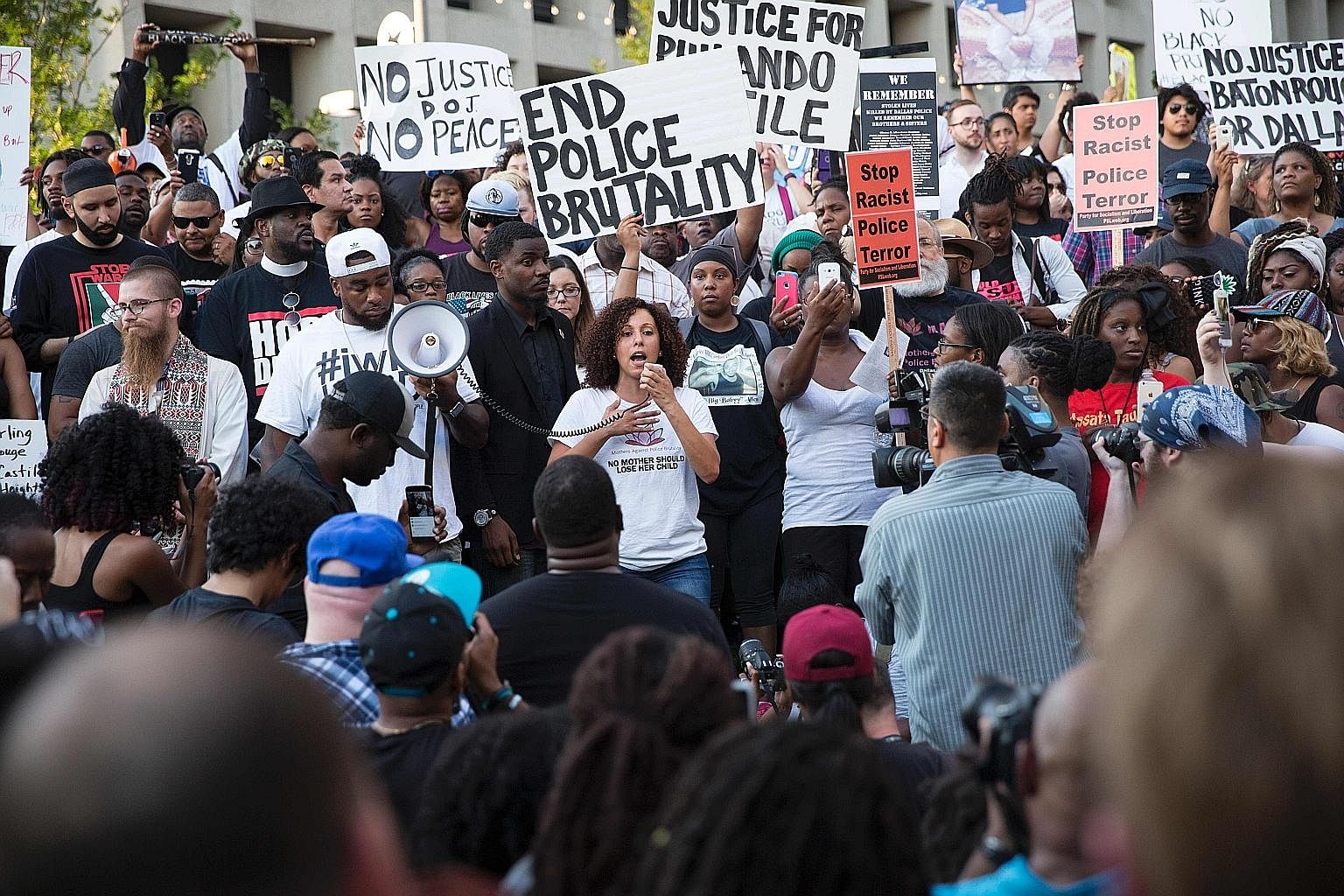From the way people consume news to how they keep in touch with friends or meet new people, it's safe to say social media use has drastically altered behavioural patterns.
New ways to break news, publish information and capture attention are being pushed out every other day by technology companies eager to score big in an overcrowded marketplace. As more and more people gain Internet access, this trend is not likely to end.
Currently, about a third of the world's population of 7.4 billion are active on social media. The shift to these digital platforms has forced businesses, celebrities and politicians alike to rethink their marketing and outreach efforts.
But increased connectivity also carries its own risk. The fast pace in which technology has developed has thrown up difficult questions about ethics, censorship, privacy and common decency.
It also begs the question: Can social media use be negotiated sensibly?
The Straits Times takes a quick look at how some things have changed.

THE POWER TO PUBLISH
The ability to transmit information to a ready audience is one of the biggest lures of social media.
A decade ago, a terror attack in Europe would have taken at least an hour or two before people living at the opposite end of the world got a full sense of the devastation.
-
About The Big Quiz
-
 This primer is part of The Straits Times' initiative to discuss issues of national concern.
This primer is part of The Straits Times' initiative to discuss issues of national concern.Each Monday, the paper's journalists will address burning questions in the Opinion section, offering Singaporean perspectives on complex issues.
The primers, as well as five campus talks helmed by editors and correspondents, are part of this paper's outreach programme called The Straits Times-Ministry of Education National Current Affairs Quiz, nicknamed The Big Quiz.
The nationwide event, whose presenting sponsor is the Singapore Press Holdings Foundation, aims to promote the understanding of civics among pre-university students.
Yishun Junior College won the first round, held at Innova Junior College on April 6. Tampines Junior College won the second round, held at Victoria Junior College on April 20, while Catholic Junior College won the third round, held at Anglo-Chinese Junior College on April 27.
NUS High School of Mathematics and Science won the fourth round, held at River Valley High School on May 18. Dunman High School won the fifth and last round at Raffles Institution on July 20.
• For more information on the quiz, go to www.straitstimes.com/tags/the-big-quiz
• For more information on the ST Schools programme and its offerings, visit www.straitstimes.com/stschools
These days, it is almost instantaneous, thanks to platforms like Facebook, Twitter and their ilk.
Anyone with an Internet connection would be able to view tweets and posts put up by those caught up in the attacks.
At times, such updates are so quick that it's not uncommon for netizens to see events unfold in real time before the attack concludes.
An advantage of this level of immediacy is that people are able to avoid danger areas while the relevant authorities are able to react more efficiently.
But sometimes, the benefits are not as clear-cut.
One recent example of this is a video put out by Ms Lavish "Diamond" Reynolds, who live streamed, via Facebook, the aftermath of her fiance's fatal encounter with police in the United States earlier this month. The gritty video, as well as several other clips on social media of police violence against the black community, spurred many to take part in a protest in Dallas a day later, where the actions of a lone gunman led to the killing of five police officers.
All this bloodshed even before official investigations got under way.
Ms Reynolds' video also highlighted the concerns about maintaining authenticity, privacy and decency with live streaming.
Observers say such realtime capability, which is also being offered by Twitter and YouTube, would be a powerful tool for terrorists to further their agenda.
The discussion surrounding this feature prompted a response from Facebook founder Mark Zuckerberg, who said: "While I hope we never have to see another video like Diamond's, it reminds us why coming together to build a more open and connected world is so important - and how far we still have to go." Facebook has since expanded a team of staff dedicated to reviewing live content at all times of the day.
THE POWER TO CROWDSOURCE
Netizens have quickly caught on to the power of crowdsourcing over social media in the digital age.
Being able to draw on the resources of many is useful in, say, a search for a missing person.
Another form of this, which is appearing with increasing frequency, is crowdfunding.
In April, a bid to raise funds for the treatment of a two-year-old born without a part of her oesophagus crossed $1.2 million after word of her plight made its rounds online.

In a reversal that is becoming more prevalent, baby Xie Yujia's story first went viral on social media before it was picked up by various news outlets. Parents Jamie Chua and Xie Wenlong hope to hit their $2 million target by the year end.
The problem, of course, is that sometimes things don't always go according to plan. Sometimes the recipient himself does not want the help, or, even worse, the sob story meant to draw donations turns out to be an elaborate ruse.
Crowdsourcing online also has its dangers, namely social media witch-hunts which can lead to mob justice. Earlier this month, an Australian expatriate lost his job after his disparaging comments about Singapore went viral.
Marketing consultant Sonny Truyen had been unhappy that the hit smartphone game Pokemon Go was not available here.
Enraged netizens not only sought his identity and work history via his digital footprint, like his LinkedIn page, but they also demanded that his employer fire him.
He was let go within a day.
THE POWER TO CONNECT
Social media has closed the distance between newsmakers and the public.
These days, politicians looking to gain more influence and clout among followers maintain an active social media presence.
Announcements affecting the nation are made on Facebook, while a glimpse of how they go about their daily lives can be seen on their Instagram accounts.
There is, typically, heightened social media activity in times of uncertainty or upheaval, such as a general election. It is perhaps no surprise that many of the most savvy government officials - US President Barack Obama and Prime Minister Lee Hsien Loong included - tend to be leaders of their political party, in part due to the effort and manpower resources devoted to their public image.
Social media platforms have also closed the gap between businesses and consumers. Aside from addressing concerns from customers directly, some organisations have also taken to promoting their products through influencers. But ethical concerns have been raised over such tactics, especially if the influencers do not declare their sponsorship or act responsibly.
In one recent example, celebrity Kim Kardashian, who has 77.6 million Instagram followers, touted the wonders of a drug that combats morning sickness but failed to mention the risks associated with taking the pill.
Eventually, she tweaked her post, but only after a warning letter was sent to the drugmaker by the US Food and Drug Administration.
WHAT NEXT?
The issues raised so far are just the tip of the iceberg.
While social media has levelled the playing field and given anyone with something to say a potentially global reach, the speed in which the industry evolves has also made it nigh impossible for regulators and the law to keep up.
As a result, many questionable practices do take place in a grey area. But where the arm of the law cannot reach, it falls on users to use common sense, and take responsibility for the content they put out.

